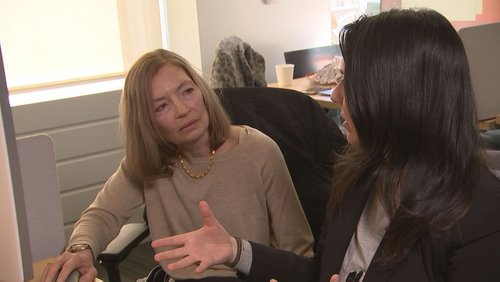Interested in bilingual reporting and newsgathering? NBC Latino managing editor Sandra Lilley offers hands-on advice when practicing journalism in two languages. The following excerpts of an interview with Lilley have been edited for clarity or length.
Differences between bilingual newsgathering and reporting
Newsgathering can at times involve making someone feel comfortable enough to communicate with you to get their story right. In bilingual newsgathering, it’s important for you and the person you are talking with to understand each other. But be realistic about how bilingual you are, and let the person know your ability level before starting your conversation so they know how to respond to you.
However, if you are doing bilingual reporting on camera or in print, your language proficiency needs to be unassailable when it comes to idioms, word usage and expressions. You need to have a strong command of the written and spoken word.
Caution when using language translation apps or software

Bilingual reporting is not something that happens as fast as you think. Why? Because languages have different structures. A sentence easily written in English may take longer to write in Spanish.
If you’re going to report in two languages, think about time management, especially if it’s digital reporting or writing. Don’t rely solely on translation apps or software to translate an interview or document from one language to another. While those may work as an initial tool as you are developing your story, it’s not a good idea to use them in your final version. Those translations may contain words, terms and expressions that are not translated correctly in the context of a particular story. It’s best to go word by word and line by line over something that may have been initially translated quickly using translation software. You have to do it yourself to get it right.
Don’t worry about accents
One of the things that keeps many people from speaking another language is being self-conscious about their accent. The good news for newsgathering is that an accent is OK if people can understand what you are saying.
For on-air bilingual reporting, accents are a little trickier. There is a difference between an accent that can be understood and sounds very clear, and an accent that may be so heavy that it impacts whether someone can understand you clearly. Most people who do bilingual reporting on the air are extremely comfortable with the way they sound in that language. A lot of that confidence comes from practice and assurance that their words are understood.
Working with a team for bilingual newsgathering and reporting
Don’t feel like you’re working alone when you are doing bilingual newsgathering and reporting. Rely on your newsroom colleagues. If you speak Spanish well as a second language, but you don’t understand a specific word in an interview, reach out for help. As a journalist, you have an obligation to get things right, and many journalists have varying degrees of bilingualism and biculturalism.
Some of my reporters ask, “Do you mind listening to this recording? I’m going to send you a clip of something because I’m not sure I got that word right.” And I’ll answer, “The lady said ‘[blank].’” That’s easy to do.
People appreciate it when you try to speak their language and try to understand their heritage and where they come from. Don’t get discouraged if you have problems understanding every word in an interview, there is always help.



